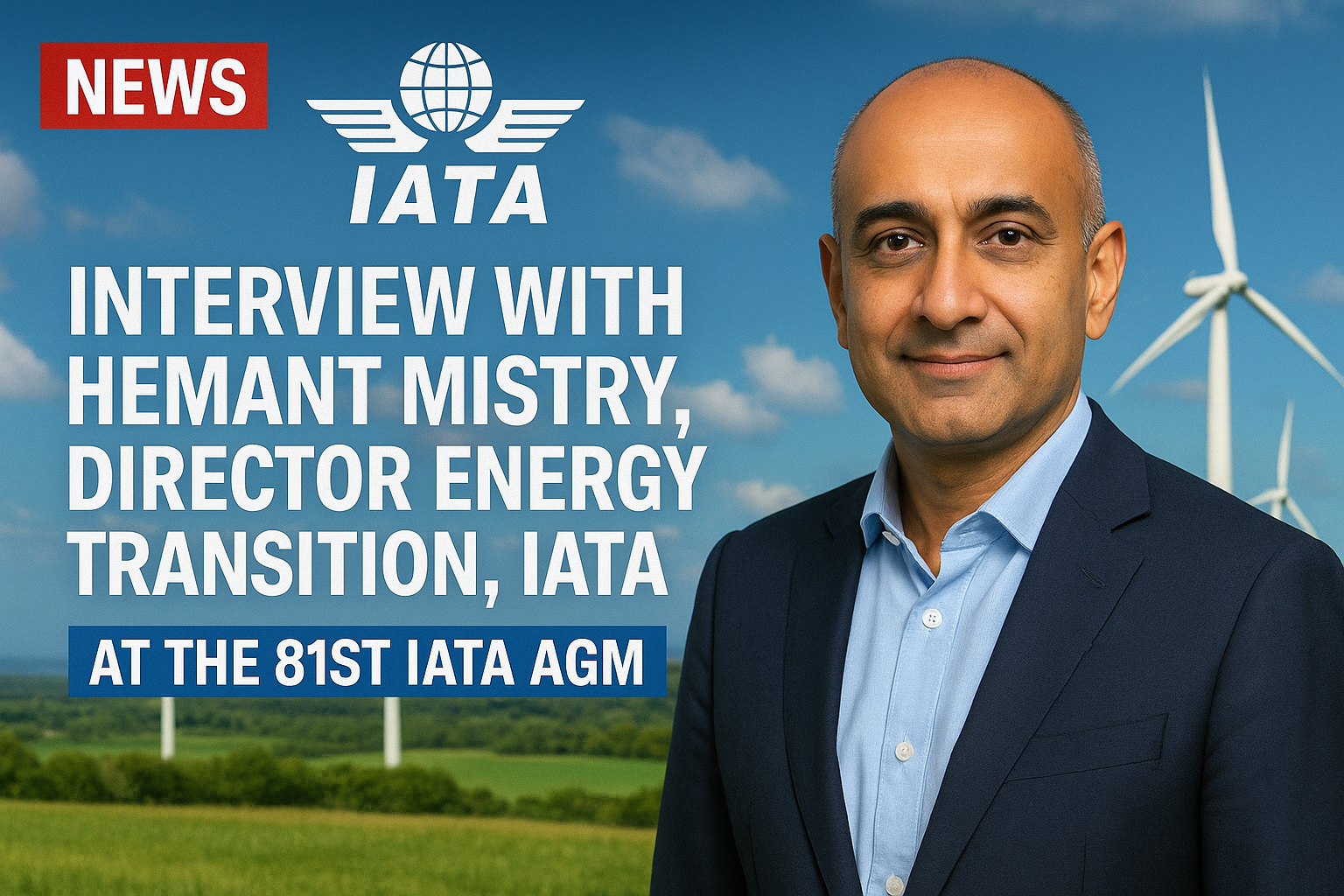At the 81st IATA Annual General Meeting (AGM), Hemant Mistry, Director of Energy Transition at the International Air Transport Association (IATA), delivered a stark message about the urgent need to ramp up production of Sustainable Aviation Fuel (SAF) — and the collective action it requires.
“We need to make sure that all of the big players are involved in this,” said Mistry, emphasizing that the current momentum is primarily driven by a limited number of boutique SAF suppliers. While their efforts are commendable, he argued that it’s not enough to move the needle on global emissions reductions.
“We need big energy and big oil companies to really step into the game. They have the technical capabilities, they have the experience, they have the balance sheets.”
Mistry pointed out that the responsibility for advancing SAF production cannot rest solely on airlines. “It can’t be left just to the airlines to make sure they have firm offtake agreements. It has to be a bit from all of the big players in the industry to really make this work,” he said.
SAF Mandates: A Double-Edged Sword?
When asked about the effectiveness of SAF mandates in Europe, Mistry expressed concern. “Mandates have worked in increasing costs,” he stated plainly. “What we’re seeing is basically the way that mandates are being applied by suppliers across Europe is that the end cost to the airlines is double the SAF market premium. That is unacceptable.”
He highlighted a critical inefficiency: the gap between what airlines are being charged and the actual market price of SAF could instead be used to prevent an additional 3.5 million tons of CO2 emissions. “That is unacceptable,” Mistry reiterated, underlining the need for urgent reform.
A Clear Call to the EU
Looking ahead, Mistry urged the European Union to act swiftly and decisively. “We haven’t got time to wait for new legislation to come in place. There are billions of dollars being wasted when we could be improving the impact on the environment.”
He outlined three immediate actions the EU can take without new laws:
- Contract Transparency: Airlines must be given clear breakdowns of SAF costs and related charges.
- Proper Documentation: Carriers should receive all necessary SAF certificates to support claims for carbon reduction schemes like the EU ETS and CORSIA.
- Procurement Freedom: Airlines must be allowed to directly procure SAF or self-supply, rather than being locked into inflexible supply agreements.
“These things can be done without legislation,” Mistry concluded. “And they have to be done quickly.”
As the aviation industry intensifies its focus on decarbonization, Mistry’s remarks highlight both the obstacles ahead and the opportunities available — provided key players step up and act in unison.


